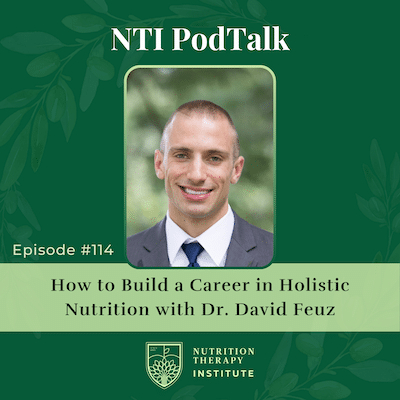
Share this post!
A recent report, published in an American Heart Association journal, concluded that multivitamins and mineral supplements do not protect against heart attacks, strokes, or other deaths due to heart disease. The report was a meta-analysis of 18 studies, which included a total of more than 2 million participants and an average of 12 years of follow-up. Basically—this was a BIG study.
Before seeing this study, it would have been reasonable to think that multivitamins might offer some protection against heart disease. Multivitamin supplements provide antioxidant vitamins A, E, and C, which should combat damaging free radicals. They provide folic acid, vitamin B6, and vitamin B12, which should support healthy homocysteine levels. They provide magnesium, which should support healthy blood pressure.
More than one-third of all Americans take a multivitamin supplement, but the results of this recent report beg us to ask why. In this blog post, we explore 3 potential reasons that multivitamins might not protect against heart disease and end with a list of 9 proven ways to reduce your cardiovascular risk.
Multivitamins Cannot Replace Whole Foods
Whole foods contain thousands of compounds that can never be replicated in a vitamin supplement. Compounds in fruits and vegetables, collectively called phytochemicals, offer a wide range of antioxidant and anti-inflammatory effects. These compounds work synergistically in ways that can never be recreated in a pill.
B vitamins provide one example of the superior effect of foods. We mentioned that folic acid, vitamin B12, and vitamin B6 support healthy homocysteine levels and are therefore thought to benefit heart health. A study of nearly 60,000 men and women in Japan, followed for 14 years, found that those with the highest intake of these B vitamins had the lowest risk for stroke, coronary heart disease, and heart failure. The important point from this study was that the intake did not come from vitamin supplements. It came from food.
Vitamin E provides another example of the different effects of supplements and food. Vitamin E is a potent antioxidant that protects against the oxidation of cholesterol. Although consumption of vitamin E-rich foods is associated with a lower risk of coronary heart disease, vitamin E supplements are associated with an increased risk of heart failure, hemorrhagic stroke, and death from all causes.
Other Factors Might Override Multivitamin Benefits
The 18 studies that were included in the analysis described above included clinical trials as well as cohort studies, where they followed a group of people over many years. Researchers do their best to control for variables that might influence the results (confounding variables), but it is impossible to account for all variables. Taking a multivitamin is one small part of a person’s overall lifestyle.
Factors that might have a more profound influence on heart health than taking a multivitamin could include smoking, exercise, and diet. If one person takes a multivitamin but eats fast food every day, and a second person does not take a multivitamin but eats vegetables all day, it is likely that the person who does not take the multivitamin will have better heart health.
Heart Health Depends on the Body, Mind, and Spirit
The heart pumps in the context of the whole body, and heart health depends on more than just a pill. A healthy diet is foundational to protecting against heart disease, with fruits and vegetables being a priority. A higher level of fitness in young adulthood is associated with a lower risk of cardiovascular disease, and even brisk walking for as little as 30 minutes per day can offer protection.
Emotions and mental health can also have a powerful effect on the heart. Emotional stress is thought to cause myocardial ischemia (lack of oxygen to the heart) in as many as 30% to 50% of people with coronary artery disease, and mental-stress-induced myocardial ischemia is more than twice as common in women as it is in men. When we start to discover the many different influences on the heart, it becomes less surprising that taking a multivitamin has little-to-no effect on outcomes.
9 Proven Ways to Protect Your Heart
The INTERHEART Study evaluated risk factors for heart attacks in thousands of people in 52 countries. The study reported 9 factors that could account for more than 90% of the risk of heart attacks in men and women. According to the results of this massive study, you can dramatically reduce your risk of heart attack by doing these 9 things:
- Don’t Smoke. People who smoke are nearly 3 times as likely to suffer from a heart attack as those who do not smoke.
- Maintain Healthy Blood Lipids. Results of the INTERHEART Study found that elevated ApoB/ApoA1 ratio (which are related to LDL and HDL cholesterol levels) dramatically increases the risk of heart attack.
- Keep Blood Pressure Controlled. High blood pressure almost doubles your risk of heart attack.
- Keep Blood Sugar Balanced. Diabetes more than doubles your risk of heart attack.
- Maintain a Healthy Weight. Obesity is a risk factor for heart attack, particularly if you carry the weight around the middle (abdominal obesity).
- Manage Stress. The INTERHEART Study found that psychosocial factors accounted for about 33% of the risk of heart attacks.
- Eat Fruits and Vegetables. Daily consumption of fruits and vegetables reduces your risk of heart attack by 30%.
- Drink Alcohol in Moderation. The INTERHEART Study found that regular consumption of alcohol slightly reduced the risk of heart attack—by 9%.
- Exercise Regularly. Regular physical activity reduces the risk of heart attack by 14%.
To Supplement Or Not?
Whether or not you choose to take a multivitamin and mineral supplement is up to you and your healthcare providers. The American Heart Association does not recommend people take multivitamins to prevent cardiovascular disease. Instead, the association recommends a diet that is rich in fruits and vegetables and low in sugar and saturated fats. Evidence suggests that your overall diet and lifestyle has a more profound effect on the health of your heart than any pill ever will.
Sarah Cook, ND, is an instructor at the Nutrition Therapy Institute.
Share this post!


















